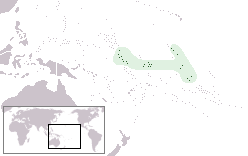Related Research Articles
In ordinary language, a crime is an unlawful act punishable by a state or other authority. The term crime does not, in modern criminal law, have any simple and universally accepted definition, though statutory definitions have been provided for certain purposes. The most popular view is that crime is a category created by law; in other words, something is a crime if declared as such by the relevant and applicable law. One proposed definition is that a crime or offence is an act harmful not only to some individual but also to a community, society, or the state. Such acts are forbidden and punishable by law.

Comparative law is the study of differences and similarities between the law of different countries. More specifically, it involves the study of the different legal "systems" in existence in the world, including the common law, the civil law, socialist law, Canon law, Jewish Law, Islamic law, Hindu law, and Chinese law. It includes the description and analysis of foreign legal systems, even where no explicit comparison is undertaken. The importance of comparative law has increased enormously in the present age of internationalism, economic globalization, and democratization.
A fatwā is a legal ruling on a point of Islamic law (sharia) given by a qualified Faqih in response to a question posed by a private individual, judge or government. A jurist issuing fatwas is called a mufti, and the act of issuing fatwas is called iftāʾ. Fatwas have played an important role throughout Islamic history, taking on new forms in the modern era.

A lawyer is a person who practices law. The role of a lawyer varies greatly across different legal jurisdictions. A lawyer can be classified as an advocate, attorney, barrister, canon lawyer, civil law notary, counsel, solicitor, legal executive, or public servant — with each role having different functions and privileges. Working as a lawyer generally involves the practical application of abstract legal theories and knowledge to solve specific problems. Some lawyers also work primarily in advancing the interests of the law and legal profession.
Conflict of laws is the set of rules or laws a jurisdiction applies to a case, transaction, or other occurrence that has connections to more than one jurisdiction. This body of law deals with three broad topics: jurisdiction, rules regarding when it is appropriate for a court to hear such a case; foreign judgments, dealing with the rules by which a court in one jurisdiction mandates compliance with a ruling of a court in another jurisdiction; and choice of law, which addresses the question of which substantive laws will be applied in such a case. These issues can arise in any private-law context, but they are especially prevalent in contract law and tort law.

Roman law is the legal system of ancient Rome, including the legal developments spanning over a thousand years of jurisprudence, from the Twelve Tables, to the Corpus Juris Civilis ordered by Eastern Roman emperor Justinian I. Roman law forms the basic framework for civil law, the most widely used legal system today, and the terms are sometimes used synonymously. The historical importance of Roman law is reflected by the continued use of Latin legal terminology in many legal systems influenced by it, including common law.

Sharia is a body of religious law that forms a part of the Islamic tradition based on scriptures of Islam, particularly the Quran and hadith. In Arabic, the term sharīʿah refers to God's immutable divine law and this referencing is contrasted with fiqh, which refers to its interpretations by Islamic scholars. Fiqh, practical application side of sharia in a sense, was elaborated over the centuries by legal opinions issued by qualified jurists and sharia has never been the sole valid legal system in Islam historically; it has always been used alongside customary law from the beginning, and applied in courts by ruler-appointed judges, integrated with various economic, criminal and administrative laws issued by Muslim rulers.

The judiciary is the system of courts that adjudicates legal disputes/disagreements and interprets, defends, and applies the law in legal cases.
Case law, also used interchangeably with common law, is a law that is based on precedents, that is the judicial decisions from previous cases, rather than law based on constitutions, statutes, or regulations. Case law uses the detailed facts of a legal case that have been resolved by courts or similar tribunals. These past decisions are called "case law", or precedent. Stare decisis—a Latin phrase meaning "let the decision stand"—is the principle by which judges are bound to such past decisions, drawing on established judicial authority to formulate their positions.
A madhhab, is a school of thought within Islamic jurisprudence.
Public law is the part of law that governs relations and affairs between legal persons and a government, between different institutions within a state, between different branches of governments, as well as relationships between persons that are of direct concern to society. Public law comprises constitutional law, administrative law, tax law and criminal law, as well as all procedural law. Laws concerning relationships between individuals belong to private law.

A mufti is an Islamic jurist qualified to issue a nonbinding opinion (fatwa) on a point of Islamic law (sharia). The act of issuing fatwas is called iftāʾ. Muftis and their fatwas played an important role throughout Islamic history, taking on new roles in the modern era.

Civil law is a legal system originating in Italy and France and adopted in much of the world. The civil law system is intellectualized within the framework of Roman law and French civil law, and with core principles codified into a referable system, which serves as the primary source of law. The civil law system is often contrasted with the common law system, which originated in medieval England. Whereas the civil law takes the form of legal codes, the common law comes from uncodified case law that arises as a result of judicial decisions, recognising prior court decisions as legally binding precedent.
Corporate liability, also referred to as liability of legal persons, determines the extent to which a company as a legal person can be held liable for the acts and omissions of the natural persons it employs and, in some legal systems, for those of other associates and business partners.

Rosara Joseph is a New Zealand cyclist who won a silver medal for New Zealand in the Women's mountain bike racing event at the 2006 Melbourne Commonwealth Games. She is also the current Oceania champion, a Rhodes Scholar at St John's College, Oxford, and a lawyer.

The sociology of law, legal sociology, or law and society is often described as a sub-discipline of sociology or an interdisciplinary approach within legal studies. Some see sociology of law as belonging "necessarily" to the field of sociology, but others tend to consider it a field of research caught up between the disciplines of law and sociology. Still others regard it as neither a subdiscipline of sociology nor a branch of legal studies but as a field of research on its own right within the broader social science tradition. Accordingly, it may be described without reference to mainstream sociology as "the systematic, theoretically grounded, empirical study of law as a set of social practices or as an aspect or field of social experience". It has been seen as treating law and justice as fundamental institutions of the basic structure of society mediating "between political and economic interests, between culture and the normative order of society, establishing and maintaining interdependence, and constituting themselves as sources of consensus, coercion and social control".
Legal pluralism is the existence of multiple legal systems within one society and/or geographical area. Plural legal systems are particularly prevalent in former colonies, where the law of a former colonial authority may exist alongside more traditional legal systems. In postcolonial societies a recognition of pluralism may be viewed as a roadblock to nation-building and development. Anthropologists view legal pluralism in the light of historical struggles over sovereignty, nationhood and legitimacy.
Legal cultures are described as being temporary outcomes of interactions and occur pursuant to a challenge and response paradigm. Analyses of core legal paradigms shape the characteristics of individual and distinctive legal cultures. "Comparative legal cultures are examined by a field of scholarship, which is situated at the line bordering comparative law and historical jurisprudence."

Law is a set of rules that are created and are enforceable by social or governmental institutions to regulate behavior, with its precise definition a matter of longstanding debate. It has been variously described as a science and as the art of justice. State-enforced laws can be made by a group legislature or by a single legislator, resulting in statutes; by the executive through decrees and regulations; or established by judges through precedent, usually in common law jurisdictions. Private individuals may create legally binding contracts, including arbitration agreements that adopt alternative ways of resolving disputes to standard court litigation. The creation of laws themselves may be influenced by a constitution, written or tacit, and the rights encoded therein. The law shapes politics, economics, history and society in various ways and also serves as a mediator of relations between people.

Lesbian, gay, bisexual, and transgender (LGBT) people in Kiribati face legal challenges not experienced by non-LGBT residents. Male homosexuality is illegal in Kiribati with a penalty of up to 14 years in prison, but the law is not enforced. Female homosexuality is legal, but lesbians may face violence and discrimination. Despite this, employment discrimination on the basis of sexual orientation has been prohibited since 2015.
References
- ↑ Dreyfuss, Rochelle Cooper; Pila, Justine (2018). The Oxford Handbook of Intellectual Property Law. Oxford University Press. ISBN 978-0-19-875845-7.